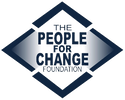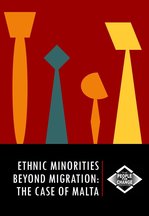Minorities Beyond Migration
|
Project start date: 01/05/2016
Duration: 12 months Funder: ENAR (European Network Against Racism) |
About the Project
Since 2002, Malta has experienced an increase in arrival of African migrants. This skewed the focus of both research and policy towards migration and subsequently equated race relations in the island state with migration status. Therefore, the emphasis on understanding and combatting racial discrimination in Malta has focused almost exclusively on the experiences of first generation migrants and specifically asylum seekers.
However, this link is misleading. In fact, Malta has always had a small population of members of different minority groups – a Muslim population, an Arab population, an Indian population, as well as a black population. The terminology itself is interesting, as these populations, particularly in their second and third generation, are mostly composed of Maltese citizens; yet often they retain cultural and ethnic aspects pertaining to their ‘points of origin’, and therefore face a different set of challenges functioning within a society that is very predominantly white and Catholic. Presently the National Statistics Office (NSO) and service providers (e.g. hospitals) in Malta do not collect data on ethnicity. Therefore, the specific features and needs of Maltese citizens that are part of ethnic minorities are unknown.
The project aims to contribute to Maltese policymakers’ efforts in improving equality and understanding and combatting racial discrimination in Malta.
However, this link is misleading. In fact, Malta has always had a small population of members of different minority groups – a Muslim population, an Arab population, an Indian population, as well as a black population. The terminology itself is interesting, as these populations, particularly in their second and third generation, are mostly composed of Maltese citizens; yet often they retain cultural and ethnic aspects pertaining to their ‘points of origin’, and therefore face a different set of challenges functioning within a society that is very predominantly white and Catholic. Presently the National Statistics Office (NSO) and service providers (e.g. hospitals) in Malta do not collect data on ethnicity. Therefore, the specific features and needs of Maltese citizens that are part of ethnic minorities are unknown.
The project aims to contribute to Maltese policymakers’ efforts in improving equality and understanding and combatting racial discrimination in Malta.
Aims and Objectives
The main aim of the project is to bridge the knowledge gap and increase understanding among Maltese authorities and civil society organisations of race dynamics and the experiences of ethnic minorities in Malta, beyond first generation migrants.
The project’ specific objectives are:
a) to provide an overview of main ethnic minorities in Malta, their features and needs;
b) to assess how members of ethnic minorities in Malta experience their minority status and issues of race dynamics;
c) to enhance awareness among practitioners and general public on race dynamics in Malta.
The project’s expected immediate results include: a) an increased awareness among public and practitioners of race dynamics and the experiences of ethnic minorities, beyond the first generation migrants, in Europe; b) Maltese authorities and civil society organisations of in Malta have a better view of features and needs of ethnic minorities’ in the country and of challenges they face related to race/ethnic discrimination
The project’ specific objectives are:
a) to provide an overview of main ethnic minorities in Malta, their features and needs;
b) to assess how members of ethnic minorities in Malta experience their minority status and issues of race dynamics;
c) to enhance awareness among practitioners and general public on race dynamics in Malta.
The project’s expected immediate results include: a) an increased awareness among public and practitioners of race dynamics and the experiences of ethnic minorities, beyond the first generation migrants, in Europe; b) Maltese authorities and civil society organisations of in Malta have a better view of features and needs of ethnic minorities’ in the country and of challenges they face related to race/ethnic discrimination
Intended Beneficiaries
The project’s direct beneficiaries are policy makers, minority organizations and NGOs. The project’s indirect beneficiaries include ethnic minorities in Malta, beyond the first generation migrants, as well as those who are intimately connected with members of ethnic minorities (e.g. family members).
The research target group includes:
The research target group includes:
- Minority Maltese individuals including Maltese of black, Arab and Indian origin
- Second and third generation migrants who hold Maltese citizenship
- Bi-racial couples
- Families with adopted African or other ethnic minority children
The People for Change Foundation's role
The People for Change Foundation is implementing this project as an independent initiative in Malta.
Research Findings and Report PublicationMaltese citizens living in racially and ethnically diverse families are largely invisible in public debates, but their experiences are stories of openness and resilience against ‘racism by proxy’, a new study by the People for Change Foundation has found. These individuals and families, who have either grown up in mixed families, entered into mixed relationships and marriages, or adopted children internationally, would like to see a country that does not see colour as a defining feature of ‘foreignness’. Yet strangers, neighbours or even their relatives probe their personal choices with curious and sometimes insensitive questions, the research revealed.
|


